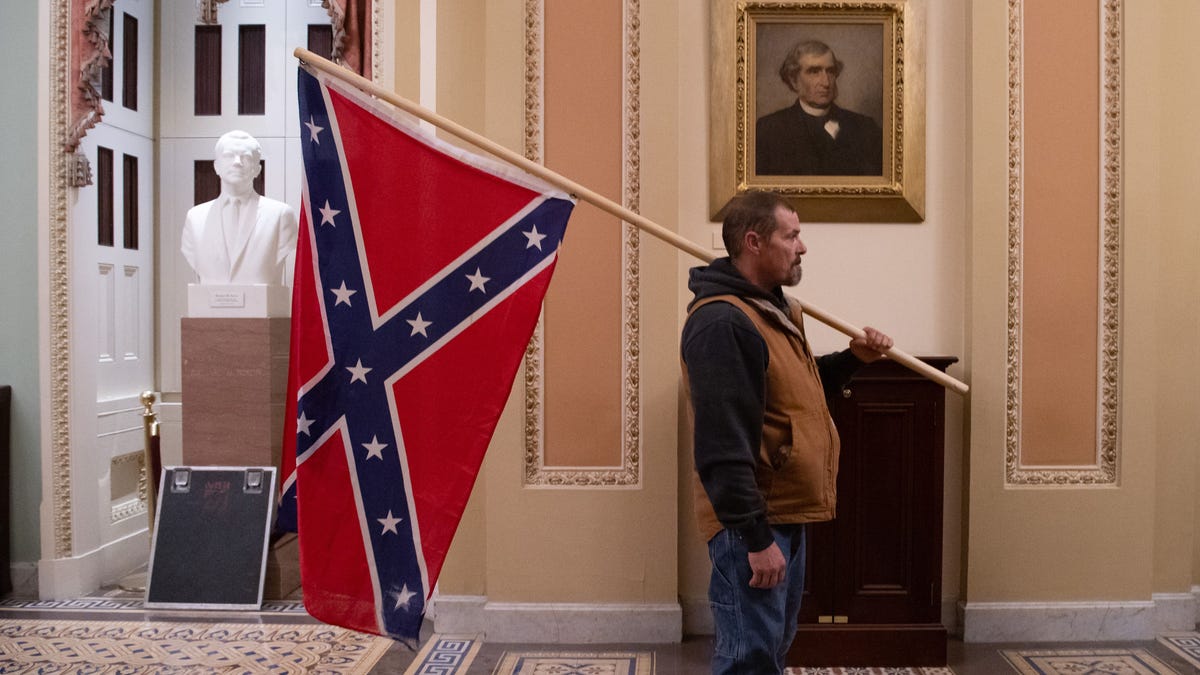Delaware Man Convicted for Capitol Riot Granted Early Release as Supreme Court Considers Felony Conviction
Kevin Seefried, a 54-year-old drywall installer from Laurel, Delaware, who infamously waved a Confederate battle flag during the Jan. 6 insurrection at the U.S. Capitol, has been granted an early release from federal lockup. Seefried has been serving a three-year prison term after being convicted last year for a felony and several misdemeanors.
Recently, a federal judge ordered Seefried’s release as the U.S. Supreme Court reviews the application of the felony obstruction charge for him and other individuals involved in the Capitol riot. The ruling will determine if the charge was rightfully applied by prosecutors in cases related to the Jan. 6 riot. Seefried’s release is scheduled to take place in the upcoming month, pending the Supreme Court’s decision.
Early Release Pending Supreme Court Decision
Oral arguments regarding the legality of the obstruction charge for Jan. 6 defendants were presented before the U.S. Supreme Court on Tuesday. The judges’ decision during this debate will have a direct impact on Seefried’s case. Seefried and his son, Hunter, engaged in storming the Capitol following the infamous “Stop the Steal” rally, where former President Donald Trump addressed his supporters in Washington.
Kevin Seefried was among the first rioters to breach the Capitol, taking part in the siegewith the Confederate flag. Meanwhile, Hunter Seefried, his adult son, was also sentenced to two years for similar charges and has recently been released early.
Kevin Seefried was primarily convicted of the felony obstruction charge, alongside one year for other misdemeanor convictions. His defense lawyers have sought his release pending the Supreme Court’s ruling, as overturning this charge would significantly alter Seefried’s sentence. They argued that keeping him incarcerated under these circumstances was unnecessary and unjust, as Seefried poses no risk of fleeing from the law.
However, federal prosecutors argued the opposite, asserting that Seefried, if released, would still pose a danger, considering the upcoming election and the political climate that prompted his actions leading to the Capitol riot. Despite this, the judge sided with Seefried’s defense attorneys and ordered his release after serving one year of his sentence, which would be in June.
Impact of Supreme Court Decision
The Supreme Court’s ruling on the application of the obstruction charge in Jan. 6 riot cases extends beyond Kevin Seefried’s early release. The rightfulness of this charge affects approximately 330 out of the initial 1,265 defendants in the attack, as per the Justice Department’s records.
The outcome of this Supreme Court decision is expected to have implications for other cases as well, including the criminal election interference charges against former President Donald Trump. This charge uses componentsof the disputed obstruction law.
In conclusion, while the Supreme Court reviews the validity of the obstruction charge in the Jan. 6 Capitol riot cases, Kevin Seefried, notable for carrying a Confederate flag during the insurrection, has been granted early release from federal prison. His freedom hinges on the Supreme Court’s decision, which will decide the application of the felony obstruction charge for multiple Jan. 6 rioters.


